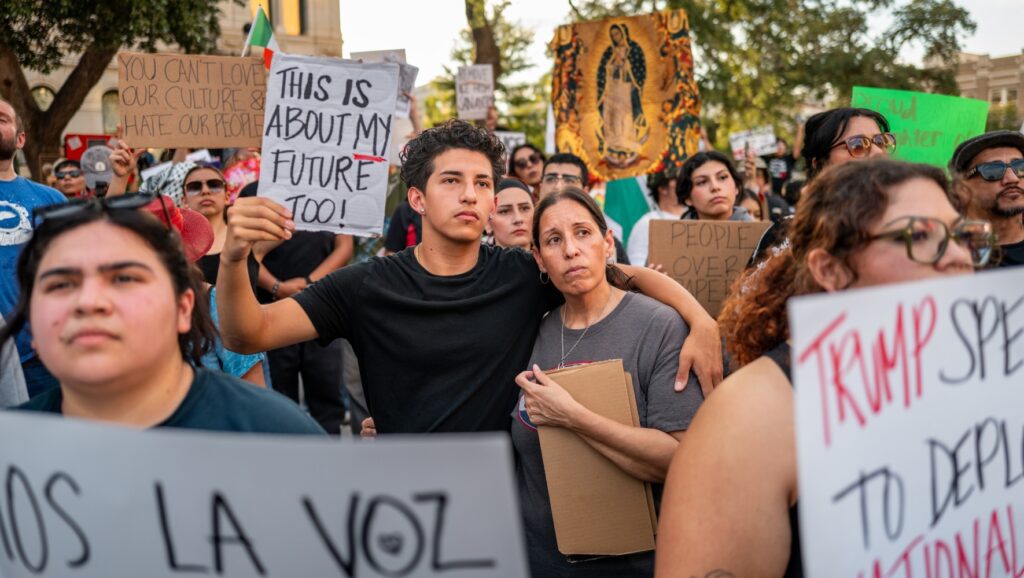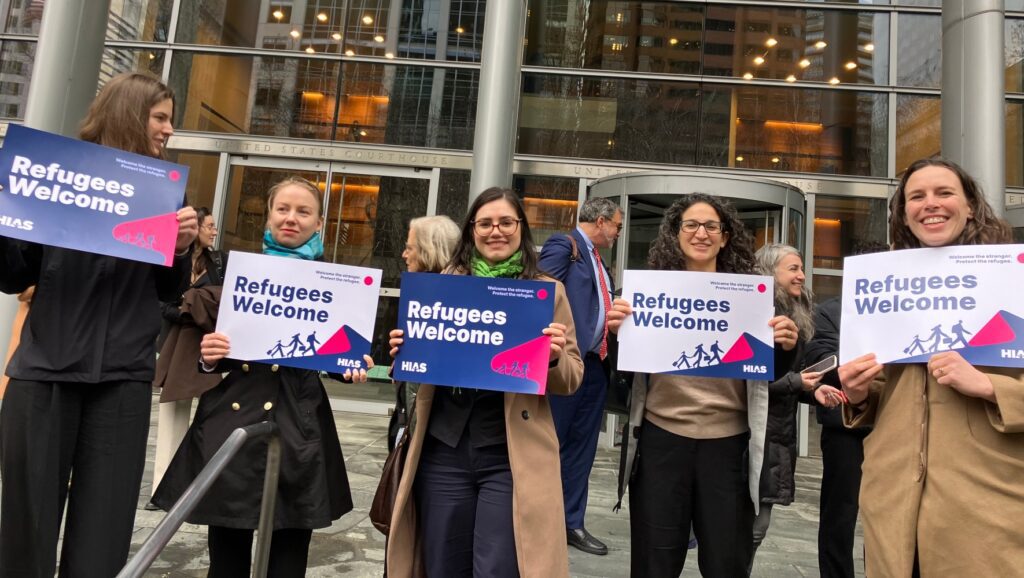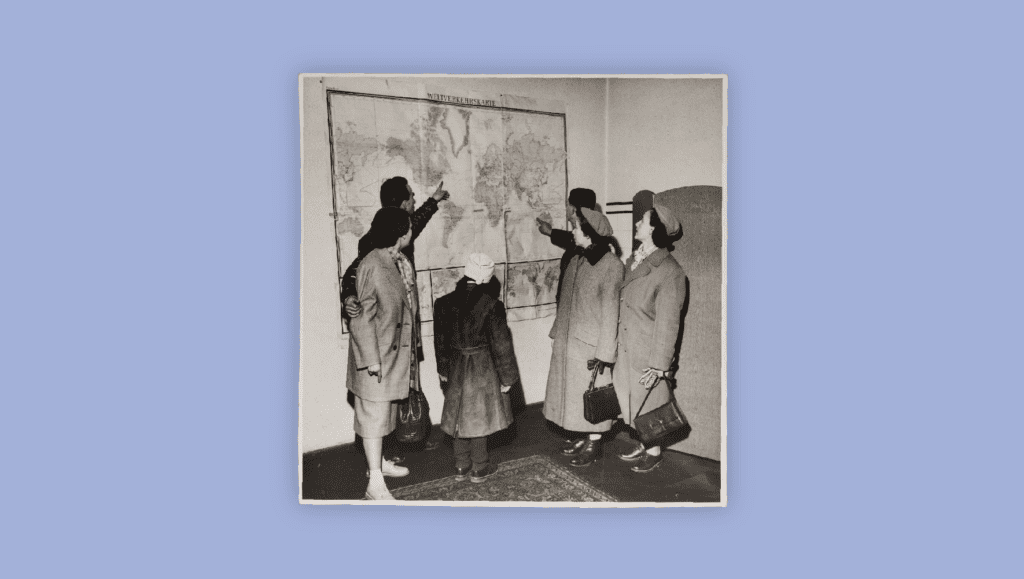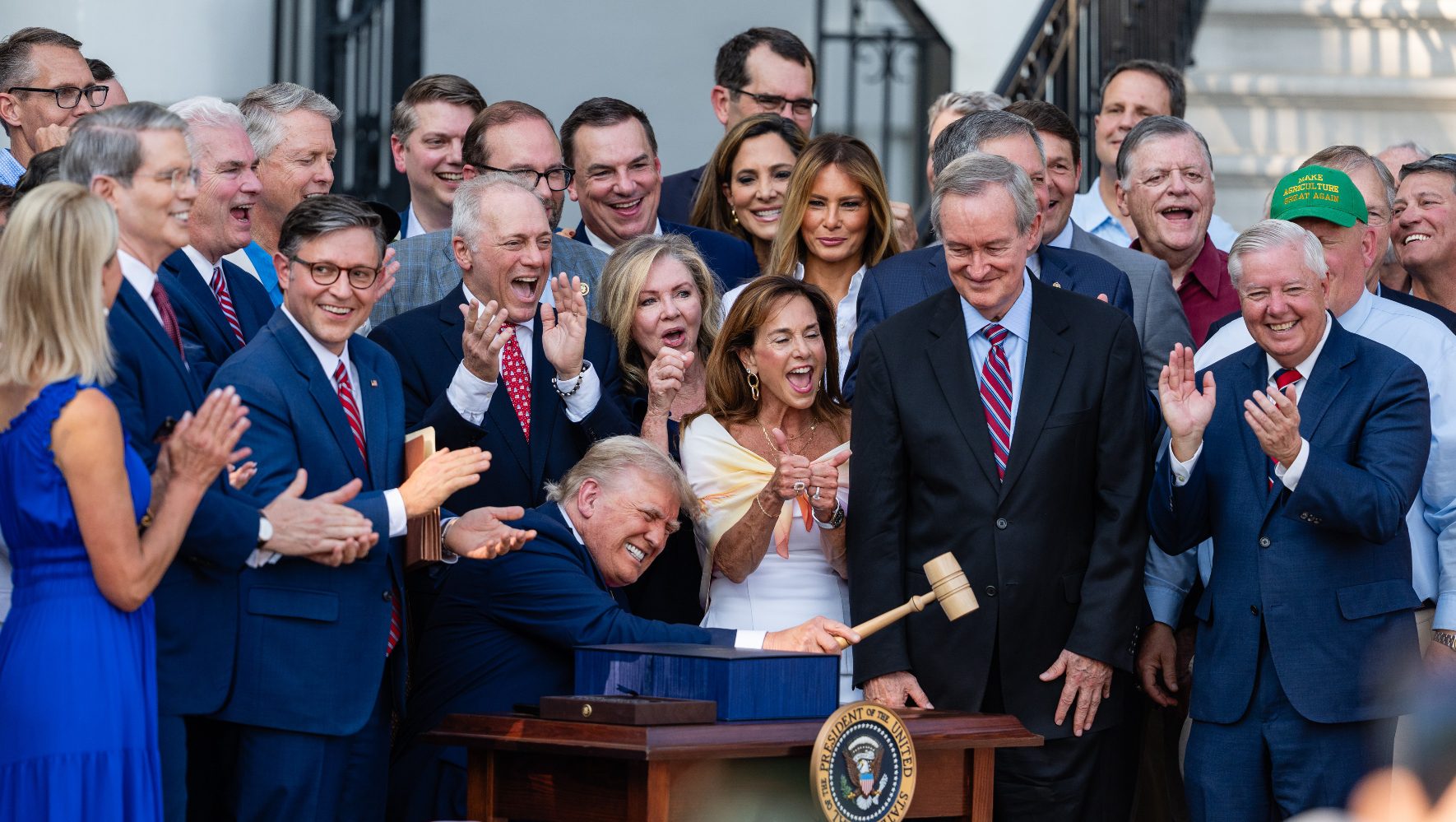
On July 4, President Trump signed the One Big Beautiful Bill (OBBB) Act into law. The OBBB Act — without overstatement — will have devastating consequences for immigrants, refugees, and American citizens. Breathtaking in its cruelty, the bill will turbocharge the Trump administration’s draconian immigration enforcement and slash federal benefits for individuals in need in order to finance it. The OBBB Act will do nothing to make the United States safer or more prosperous. It will, instead, target and instill fear in immigrant communities across the country.
What exactly is in the bill, and what will its consequences be? Here’s what you need to know.
Give today
What does the bill entail for immigration enforcement?
The OBBB Act will spend $170 billion on immigration enforcement. To put this sum into perspective, the entire budget for the FBI — the country’s premier law enforcement agency — is less than $11 billion. The $170 billion figure includes:
- $46 billion in border wall construction
- $45 billion to expand ICE detention capacity
- $41 billion to support federal and state law enforcement on the border
This is an irresponsible use of the public’s money. A border wall is unlikely to deter irregular migration and will redirect entry routes to alternative, more dangerous areas. Expanding ICE detention capacity — the agency will now have more than three and a half times the bed space currently available — will increase intolerable, unsafe, and unsanitary living conditions. The funding for law enforcement at the border will completely close off the legal right to asylum and will expel individuals back to dangerous and harmful situations abroad.
The Trump administration’s mass detention and deportation budget will now be larger than the total economic output of nearly every other country on Earth. And yet it is notable for what it does not include as much as for what it does. Less than 2% will go toward the entire immigration court system, where 4 million cases are still pending with an average wait time of three years. The OBBB Act will cap the total number of immigration judges at 800, which will result in an average of 5,000 cases per judge — a staggering amount.
If the administration were committed to creating a fair, orderly, and efficient process, it would invest in more judges to reduce the backlog and identify and protect individuals with legitimate fear of persecution or torture abroad, as the law requires.
This is not what happened.
The consequences for vastly expanding immigration enforcement resources will be severe for immigrant communities. Since President Trump’s inauguration in January, we’ve seen an alarming rise in the number of immigrants and their families, the large majority of whom are Latino, be targeted, separated, locked up, and denied their rights. Many have been sent back to countries they hardly know — or have no connection to at all. The OBBB Act guarantees that these actions will only multiply.
The consequences for vastly expanding immigration enforcement resources will be severe for immigrant communities.
How does the bill strip social services from those granted humanitarian protection?
The OBBB Act’s devastating consequences for refugees, asylees, and victims of violent crime go well beyond the enforcement provisions. The bill also eliminates critical social services including affordable health care, such as Medicaid and subsidies from the Affordable Care Act, and food assistance (SNAP).
These programs are essential to successful resettlement in the U.S. They help individuals obtain healthcare, education, housing, and employment opportunities, vital resources for a population that often faces barriers to access. They allow refugees and asylees as well as victims of human trafficking and violence to land on their feet and start businesses, fill labor shortages, and contribute to the economy. Providing healthcare also reduces emergency care costs for hospitals and states. In addition to sparking a rise in the uninsured population, the OBBB Act will also trigger job losses in the healthcare industry, where many refugees and asylees are employed. Curbing access to SNAP benefits will only make it more difficult for refugees and asylees to feed themselves and their families.
The U.S. government has identified the population affected here — refugees, asylees, and others granted protection — as needing humanitarian assistance. They are highly vetted, possess lawful status, and have a pathway to citizenship. What this legislation does, perversely, is subject them to a higher risk of hunger and poor health. The OBBB Act leaves them without crucial support services for resettlement and economic independence. These cuts — justified to “pay for” the OBBB Act’s immigrant enforcement campaign — will harm both individuals with humanitarian protection but also the country at large.
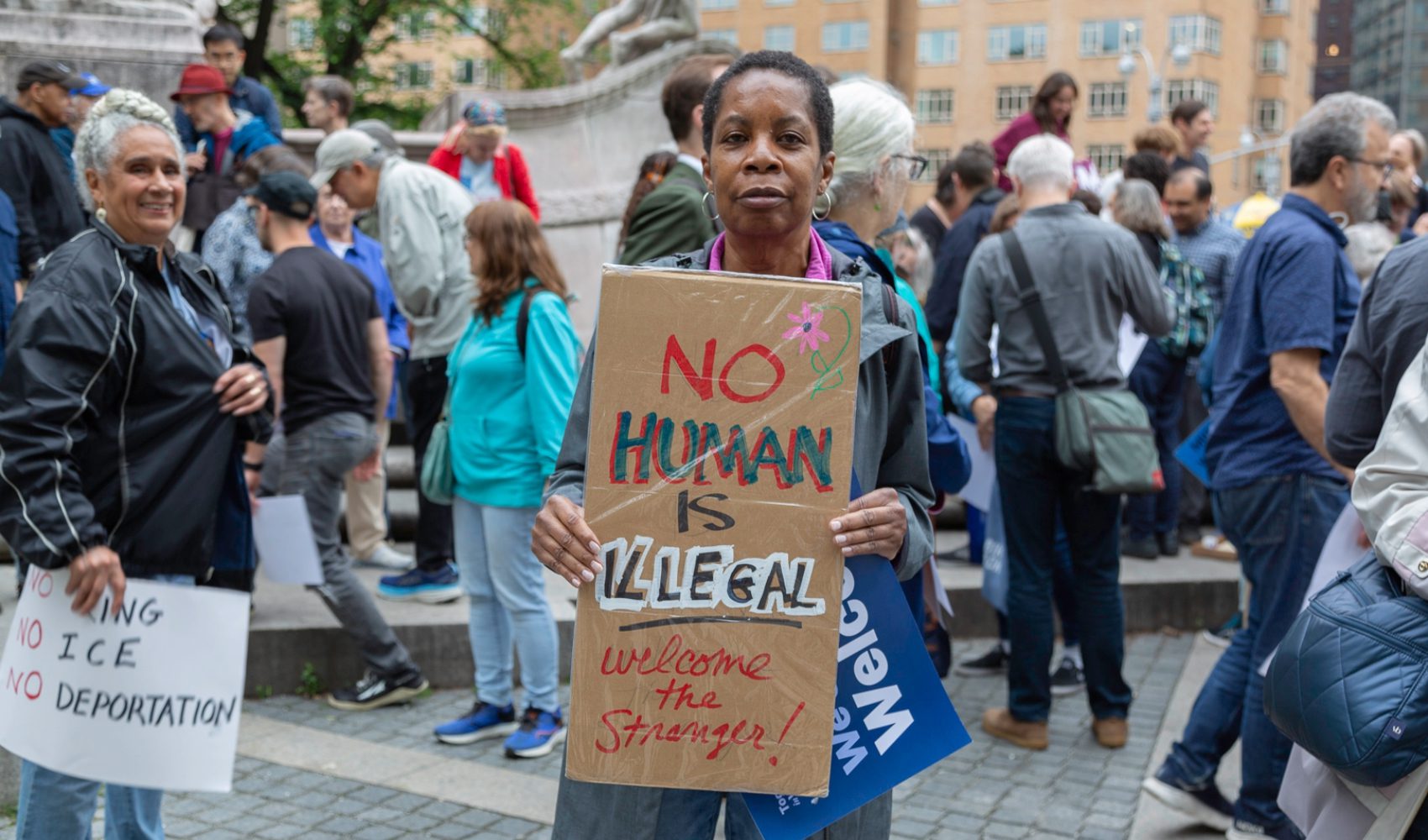
In Vigils Across the Country, Americans Gather to Fight for Welcome
Read MoreWhat should the country’s approach to immigration be instead?
By signing the OBBB Act into law, the Trump administration will commit an astronomical sum of public money toward an immigration policy that offers little but division, intimidation, and waste. Efforts to detain, arrest, and deport hard-working and largely law-abiding immigrants, a majority of whom have no prior criminal convictions, will only accelerate, greatly harming economic and social life in the U.S.
The OBBB Act arrives as the administration continues to show a brazen disregard for complying with judicial orders, respecting the due process of individuals in its custody, and following the rule of law.
What would a sane, humane immigration policy in the United States include?
- Lawful pathways to citizenship for individuals who have settled in and positively impacted the U.S. such as DACA recipients, essential workers, and refugees.
- Safe, regular pathways to entry and eliminating per-country visa caps for individuals to reunite with family or seek educational and employment opportunities.
- Investing in the inspection of individuals at ports of entry to deter irregular migration and tackle border security while improving living conditions in CBP and ICE detention centers.
The Trump administration could also take a significant step forward if it complied with the law. In the last six months, several federal judges have found the administration’s actions to severely restrict immigration unlawful and unconstitutional, and recently, a federal judge ruled that the president’s “asylum ban” was a clear violation of well-settled law. The U.S. Supreme Court has also ordered the administration to provide meaningful due process, including adequate prior notice, for immigrants to challenge their deportation.
These priorities respect human dignity — the foundation of any system of law and order — instead of inflammatory rhetoric, political opportunism, and performative photo-ops. For now, the OBBB Act will only empower President Trump and his administration to further trample on immigrant rights, breaking the law in open defiance of court orders.
Another path forward is possible.
